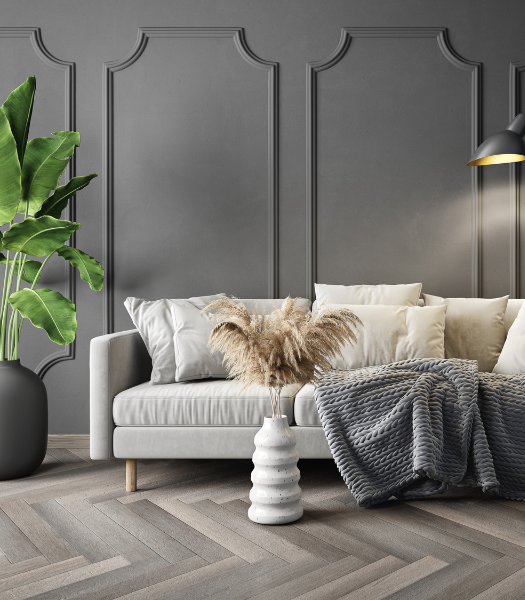
Choosing the perfect home to compliment your lifestyle
Choosing the perfect home is a monumental decision, one that goes beyond just the number of bedrooms or a spacious backyard. It’s about finding a place that truly complements your lifestyle, where you can envision yourself thriving for years to come.
The Importance of Size
When it comes to choosing the perfect home, size matters. A large family may struggle in a cramped two-bedroom apartment, but a sprawling ranch-style house might be overkill unless it caters to other needs, such as sufficient bathrooms and living space. Assess the number of rooms you need, considering factors such as potential for a home office, guest rooms, or a hobby space.
Additionally, think about future growth. If you plan on expanding your family or having frequent visitors, having extra space might be a necessity. On the other hand, if you’re downsizing or prefer a minimalist lifestyle, a smaller home might be more appropriate.
Considering the Floor Plan
Floor plans often vary based on location. In an urban setting, you might find multi-level brownstones that maximize vertical space, while suburban areas offer more expansive layouts with ample outdoor space. The key to choosing the perfect home is to match the floor plan to your lifestyle.
If urban living appeals to you, look for a downtown home close to restaurants, shops, and other amenities. On the other hand, if you have a growing family, a suburban or rural home might be more suitable, providing access to good schools, safe neighborhoods, and plenty of space for kids and pets.
Consider how you move through your daily routine. Do you prefer a single-story home to avoid stairs, or do you enjoy the separation of living and sleeping areas provided by a multi-story house? Open floor plans can be great for families and entertaining, but may lack the privacy of more segmented layouts.
Location, Location, Location
The location of your home can significantly impact your lifestyle. Proximity to work, schools, shopping, healthcare, and recreational facilities can all play a crucial role in your daily life. Research neighborhoods to find out about their amenities, community vibe, and safety when choosing the perfect home.
Urban areas often offer vibrant cultural experiences, shorter commutes, and a variety of dining and entertainment options. However, they can also be noisier and more crowded. Suburban areas provide more space, quieter environments, and often better school systems, but may require longer commutes and have fewer entertainment options.
Rural areas offer vast open spaces, privacy, and a closer connection to nature, but can be far from conveniences like shopping centers and medical facilities. Your choice should align with your daily needs and long-term lifestyle goals.
Furniture Considerations
Think about whether you’ll be using your current furniture or buying new pieces to fit your new home. Measure your existing furniture and the spaces in prospective homes to ensure a good fit. Consider the style and scale of your furniture; will it complement the new space or will you need to make adjustments?
Also, think about storage. Does the home have enough closets, cabinets, and storage spaces to accommodate your belongings? If you have a lot of outdoor gear, tools, or seasonal items, ensure there’s a garage or shed available. These considerations are crucial when choosing the perfect home that meets all your practical needs.
Entertaining and Functional Spaces
Do you love hosting parties? Then a home with an open floor plan that allows for easy movement and interaction between the kitchen and living areas might be perfect for you. A backyard or patio can also be a great extension of your entertaining space.
When evaluating a home, focus on the layout more than the décor. A home that flows well from room to room will feel more welcoming and functional. Don’t be swayed by superficial elements like new carpet or fancy finishes; instead, envision how you and your guests will move through the space. This approach is key to choosing the perfect home for your social lifestyle.
Consider the kitchen layout. If you love cooking and entertaining, a spacious, well-equipped kitchen with plenty of counter space and seating might be a priority. An island or breakfast bar can be a great addition for casual dining and socializing.
Energy Efficiency and Sustainability
In today’s eco-conscious world, energy efficiency and sustainability are important factors to consider. Look for homes with energy-efficient appliances, good insulation, and renewable energy sources such as solar panels. These features can reduce your environmental footprint and save you money on utility bills.
Check the windows and doors for proper sealing and insulation, and consider the orientation of the home. South-facing windows can provide natural light and warmth, reducing the need for artificial lighting and heating. These sustainable features are often overlooked but are essential when choosing the perfect home.
Home Maintenance and Upkeep
Consider the age and condition of the home. Older homes might have charm and character, but they can also come with maintenance challenges and higher repair costs. Newer homes or newly renovated homes might be more energy-efficient and require less immediate upkeep.
Ask about the roof, plumbing, electrical systems, and foundation. These are critical components that can be expensive to repair or replace. A thorough home inspection can reveal potential issues and give you a better understanding of the home’s condition. This step is vital in choosing the perfect home that won’t surprise you with hidden costs.
Outdoor Space and Landscaping
The outdoor space is an extension of your home and can greatly enhance your living experience. Consider the size and usability of the yard, garden, or patio. Do you have children or pets that need space to play? Do you enjoy gardening or want a space for outdoor dining and relaxation?
Landscaping can also impact maintenance. A large, beautifully landscaped yard can be a joy but also requires time and effort to maintain. If you prefer low-maintenance options, look for homes with xeriscaping or native plants that require less water and care. These aspects are crucial when choosing the perfect home with the right balance of outdoor space and upkeep.
Future Resale Value
While you might plan to live in your new home for many years, it’s wise to consider its future resale value. Look at the trends in the neighborhood and the potential for property value appreciation. Homes in good school districts, safe neighborhoods, and close to amenities typically hold their value better.
Unique or highly personalized features can sometimes make resale more challenging. While it’s important to love your home, think about how marketable it will be when it’s time to sell. This consideration is an important part of choosing the perfect home with a long-term perspective.
Balancing Aspirations with Practicality
While it’s easy to get carried away with dreams of a perfect home, practicality often brings us back to reality. Keep your budget in mind, along with your list of must-haves and deal-breakers. Trust your instincts, but don’t hesitate to seek expert advice if you’re unsure.
It’s essential to get pre-approved for a mortgage to understand your budget and avoid falling in love with homes outside your price range. Work with a trusted real estate agent who understands your needs and can help you navigate the market. This practical approach ensures you are choosing the perfect home that fits both your dreams and your financial reality.
welcome

Add Your Heading Text Here
FREE GUIDE

